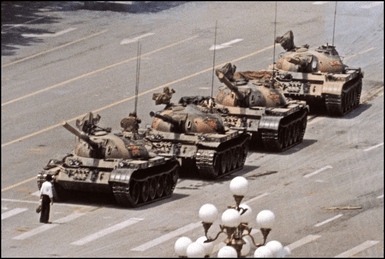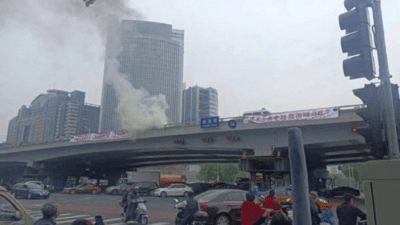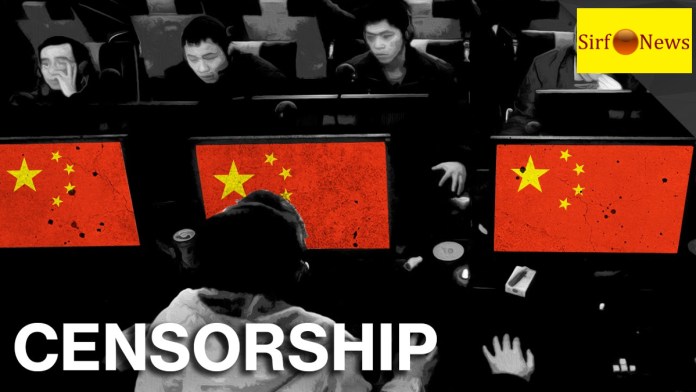The internet watchdog of China is stepping up and setting cyberspace regulations to crack down on the online disagreement growing in China on the Covid restrictions laid for the public. The enforcement of the new rules will be effective from 15 December.
The second-largest economy in the world plans to control social media like never before, according to a media report.
The introduction and amendment of the new regulations happened earlier this month by the CAC under the strict vigilance of China’s President Xi Jinping. These have gained the audience’s attention and will be enforced right after the anger wave sweeping in China.
From the top cities of a repressive China, be it Beijing or Shanghai, protests were happening, demanding to end the Covid restrictions. In contrast, internet users are taking screenshots and evading the censors. With an intent to scrub the internet of dissent, the authorities are scrambling. However, CAC had introduced the new rules in 2017. The latest regulation is an updated version.
Rules made in 2017 turn stricter in China
For the first time, the rules state that “likes” of public posts must be regulated, along with other types of comments. Further, Public accounts must also actively vet every comment under their posts.

The new rules will come into force with effect from today, weeks after an unprecedented wave of public anger started sweeping the country. Thousands of demonstrators protested in more than a dozen cities over the weekend, demanding an end not only to the country’s draconian Covid restrictions but also to the political regime of China. Activists are raising slogans, asking President Xi Jinping to step down.
And unlike the uprising in 1989, which the communist regime in China suppressed by rolling out army tanks at Tiananmen Square, the protests in 2022 are not limited to a city.

“Liking something that is illegal shows that there is popular support for the issue being raised. Too many likes ‘can start a prairie fire,’” said David Zweig, professor emeritus at the Hong Kong University of Science and Technology, referring to a Chinese expression about how a single spark can start a far larger blaze.
“The threats to the [Chinese Communist Party] come from an ability to communicate across cities. The authorities must have been really spooked when so many people in so many cities came out at the same time,” the professor was quoted as saying by CNN.
“The authorities are very concerned with the spreading protest activities, and an important means of control is to stop the communications of the potential protesters including reports of protest activities and appeals of joining them,” said Joseph Cheng, a retired professor of political science at the City University of Hong Kong, in the report.
“This cyberspace control is an important lesson absorbed from protest activities like the Arab Spring,” he said, referring to protests that washed over Tunisia, Egypt, Libya, Syria, Yemen, Bahrain and the eastern province of Saudi Arabia in 2011.
“What is important to note is that in the wake of the [China] protests, we will likely see more aggressive policing of Chinese cyberspace, especially if the protests expand,” said Isaac Stone Fish, founder and CEO of Strategy Risks, a China risk-consultancy firm based in New York.
In recent years, China has gradually intensified its censorship of social media and other online platforms, including launching crackdowns on financial blogs and unruly fan culture. This year, the country’s strict zero-Covid policy and Xi’s securing of a historic third term have sparked discontent and anger among many online users. But under the increasingly strict internet censorship, many voices of dissent have been silenced.
What are the latest, revised rules?
According to the regulation, all online sites are required to verify users’ real identities before allowing them to submit comments or like posts. Users have to be verified by providing their personal ID, mobile phone, or social credit numbers.
All online platforms must set up a “vetting and editing team” for real-time monitoring, reporting, or deleting content. In particular, comments on news stories must be reviewed by the sites before they can appear online.
All platforms also need to develop a credit rating system for users based on their comments and likes. Users with poor ratings dubbed “dishonest” will be added to a blocklist and banned from using the platform or registering new accounts.
However, analysts also questioned how practical it would be to carry out the newest rules, given that public anger is widespread and strict enforcement of these censorship requirements would consume significant resources.
“It is almost impossible to stop the spread of protest activities as the dissatisfaction continues to spread. The angry people can come up with all sorts of ways to communicate and express their feelings,” Cheng said. “The major deterrent lies in the perception that the (Communist) Party regime is still in control and the sanctions are severe.”
Chongyi Feng, an associate professor in China Studies at the University of Technology Sydney, said that it is “extremely difficult” now for the Chinese public to voice their grievances and anger.
“Cyberspace policing by Chinese authorities is already beyond measure, but that does not stop brave Chinese citizens from challenging the regime,” he said.
The mandatory precheck set for websites is to verify the users and capture their real identities before they submit any post or like. The first layer of personal details will help trace and deem illegal. Additionally, a credit rating system needs to be developed at the backend. Yet the analysts are questioning the practical implications of the new regulations. Cyberspace policing is already beyond the measures, but the netizens still do not fear challenging this regime.
FAQ
- Who is the CAC chair?
Xi Jinping. - What is CAC?
Cyberspace Administration of China. - When will the new regulations be enforced?
15 December.



You must log in to post a comment.